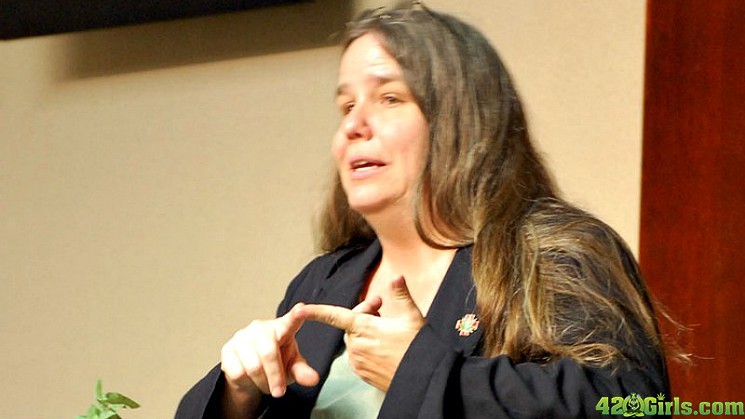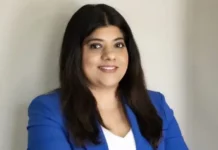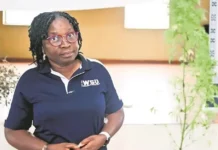Update: Tomorrow, February 3, a memorial service will be held in Boulder for Laura Kriho, an important and passionate cannabis activist who died earlier this week; see our previous coverage below.
Information about the gathering is included in a lovely and heartfelt remembrance shared by members of Kriho’s family under the auspices of the Cannabis Therapy Institute, the organization Kriho used to educate the public about the medicinal attributes of marijuana and push for greater access to a plant she felt had been unfairly demonized.
Continue to learn more about Kriho and the service details.
Cannabis Therapy Institute Mourns Loss of Laura Kriho, CTI Founder and Marijuana Activist
It is with great regret that we announce today the death of our founder, Laura Kriho, who passed peacefully on Monday evening surrounded by her loving family and friends.
Laura was a well-known fixture in the activist community of Boulder and the surrounding area, working diligently to promote the benefits of medical marijuana, and to champion the ultimately successful effort to legalize marijuana within the state of Colorado.
Born on the south side of Chicago, Laura’s father was a respected Principal in the Chicago Public School System, and her mother was a researcher for the University of Illinois. In the early 1980s, immediately after early graduation from high school, Laura moved to the Boulder area and lived for some time in Nederland and the surrounding communities. She felt an immediate comfort level with the environment, people, and culture of the area and was certain she had found her true natural domicile.
An interesting and colorful character, Laura possessed a strong (some might say, stubborn) personality, and was totally committed to causes within which she believed. This commitment is very much in evidence by her efforts to thwart a jury verdict in a highly-publicized 1996 drug case against a young girl. Her subsequent prosecution for her efforts took a toll on her personally, and also on her family. However, perseverance and massive support from the activist community eventually lead to dismissal of all charges. The case is mentioned in a Wikipedia article on Jury Nullification.
In the 1990s, Laura worked for state senator Lloyd Casey, one of the first to propose a hemp-legalization bill. Although the bill ultimately failed, it represented an early and important push forward for the wave of awareness and acceptance of legal marijuana. Fortunately, Laura was alive to witness the next big wave of progress, culminating in the recent legalization of marijuana for recreational use in four additional states. Laura lived a full, interesting and passionate life, one cut very short to be sure, but the mark Laura left on this world will survive eternally. She will most definitely be missed.
Contributions in her memory may be made to a cause that is in line with her passions and values, or simply pledge to help change the world by working on behalf of one of those. For friends, colleagues and activists who knew Laura Kriho, please join us on Friday, February 3rd for a memorial (6 p.m. visitation, 7 p.m. memorial service) at Greenwood & Myers Mortuary, 2969 Baseline Road, in Boulder, Colorado.
Original post, 2:21 p.m. January 31: We’ve just learned about the death of Laura Kriho, one of Colorado’s most outspoken advocates for cannabis reform.
We first wrote about Kriho after she was the lone holdout for acquittal in a 1996 drug case in Gilpin County; forced to declare a mistrial, the judge and the DA went after Kriho in what her attorney labeled a demonstration of “prosecutorial and judicial vindictiveness.” But Kriho stuck to her principles, and she became an inspiration of the jury-nullification movement.
As the woman behind the Cannabis Therapy Institute, Kriho also championed the medicinal attributes of marijuana. While her efforts on behalf of Legalize 2012 ultimately finished in second place behind the successful Amendment 64 campaign, her tireless dedication to promoting ever more progressive cannabis policies was as inspirational as it was important.
Her brother, Nicholas, summed up Kriho’s influence in a Facebook post announcing her passing. It reads: “Well my little sister just died. Those of you who knew her know that she was a beautiful person. Those of you…oh fuck…look up LAURA KRIHO and see what an impact she has had on this world.”
Kriho, who worked in the 1990s for state senator Lloyd Casey, known as the father of hemp legalization, wasn’t a big fan of compromise, as witnessed by the headline of a May 2010 Westword post featuring an interview with her: “Medical marijuana bill worse than nothing, says Cannabis Therapy Institute’s Laura Kriho.” She felt much the same way about Amendment 64. Below, we’ve republished a brief 2013 Q&A with former Westword marijuana critic William Breathes in which she doesn’t exactly sing the measure’s praises.
Still, she kept fighting the good fight, more recently through an educational enterprise called the Cannabis Hemp Academy. Her death silences a person who passionately believed in greater access to cannabis — and she played a big part in pushing the movement forward.
Here’s the aforementioned Q&A.
Marijuana Q&A with Laura Kriho: “The fight for legalization is nowhere near over”
By William Breathes
April 17, 2013
This week’s multi-part cover story about the state of the state of marijuana takes a look at Amendment 64 and how legislators will address implementing the legalization of small amounts of cannabis and the shops that will sell it. Our print edition also features a Q&A with Amendment 64 proponent Mason Tvert. But to get a broader look at the subject, we also caught up with several other cannabis activists, as well as representatives of business groups, to ask them their take on A64 and the challenges ahead. Our first comes from the Cannabis Therapy Institute’s Laura Kriho.
Westword: Five years ago, where did you see Colorado in regard to cannabis legalization by 2013? Do you think the state has met that goal with Amendment 64?
Laura Kriho: A64 is not legalization, it is regulation of cannabis. Legalization would be removal of all penalties for cannabis use. A64 creates a strict regulatory scheme for marijuana. Under A64, you can still lose your home, your job and your children if you consume cannabis, and it does nothing to protect eighteen-to-twenty-year-olds at all. We will not have true legalization until we remove ALL penalties for ALL people, including retroactively applying the changes to those who have been previously harmed by cannabis laws.
WW: Where do we go from here as a state? What is the biggest challenge you see going forward/what still needs to be done?
LK: The biggest challenge will be to bring true legalization to the constitution. People have become even more complacent since A64’s passage. They think they voted for legalization, because that’s how the media portrayed it. Now that the truth is coming out that A64 doesn’t really legalize cannabis, people are discouraged and feel like they were deceived.
WW: What is important for Colorado citizens to know about cannabis legalization?
LK: It is important for people to know what true legalization is. True legalization means no penalties of any kind for anyone — all pot smokers are equal. However, the A64 regulation model has created a scenario where we have “good” pot smokers and “bad” pot smokers. The “good” pot smokers are the ones who will follow all the new regulations, register with the state and pay outrageous taxes allowed by A64. The “bad” pot smokers are the ones who will refuse to follow the new regulations just as they refuse to follow the current regulations. They don’t think cannabis needs to be tightly regulated, as they know it is the safest therapeutic substance on the planet. They refuse to pay taxes that will only go to fund law enforcement and refuse to register with the state. A64 has created a situation where the “good” pot smokers will actually be funding the police to go after the “bad” pot smokers. This is an ideal situation for the police, but not for freedom. True legalization cannot be attained in a situation where one group of pot smokers is pitted against the other and where one group of pot smokers is actually funding the police to go after other pot smokers. This only benefits the police, and is not true legalization.
WW: Anything else you’d like to add?
LK: The best thing we can do, without millions of dollars to run a ballot initiative campaign, is to continue to educate people about the benefits of cannabis and hemp and to encourage them to participate in the political process. Millions of people in the U.S. are still being harmed by cannabis prohibition. The fight for legalization is nowhere near over.
News Moderator: Katelyn Baker [URL=”http://www.420magazine.com”]420 MAGAZINE ®[/URL]
Full Article: [URL=”http://www.westword.com/news/remembering-laura-kriho-outspoken-cannabis-advocate-and-true-believer-8748934″]Remembering Laura Kriho, Outspoken Cannabis Advocate And True Believer[/URL]
Author: Michael Roberts
Contact: [URL=”http://www.westword.com/about/contact”]Westword[/URL]
Photo Credit: Nick Lucchesi
Website: [URL=”http://www.westword.com/”]Westword[/URL]











